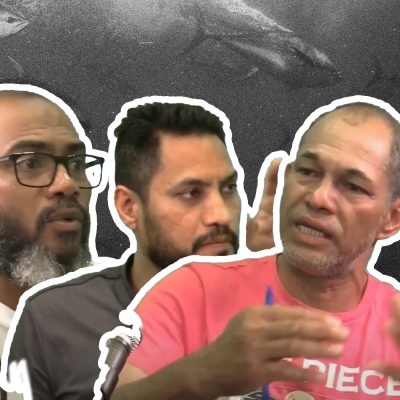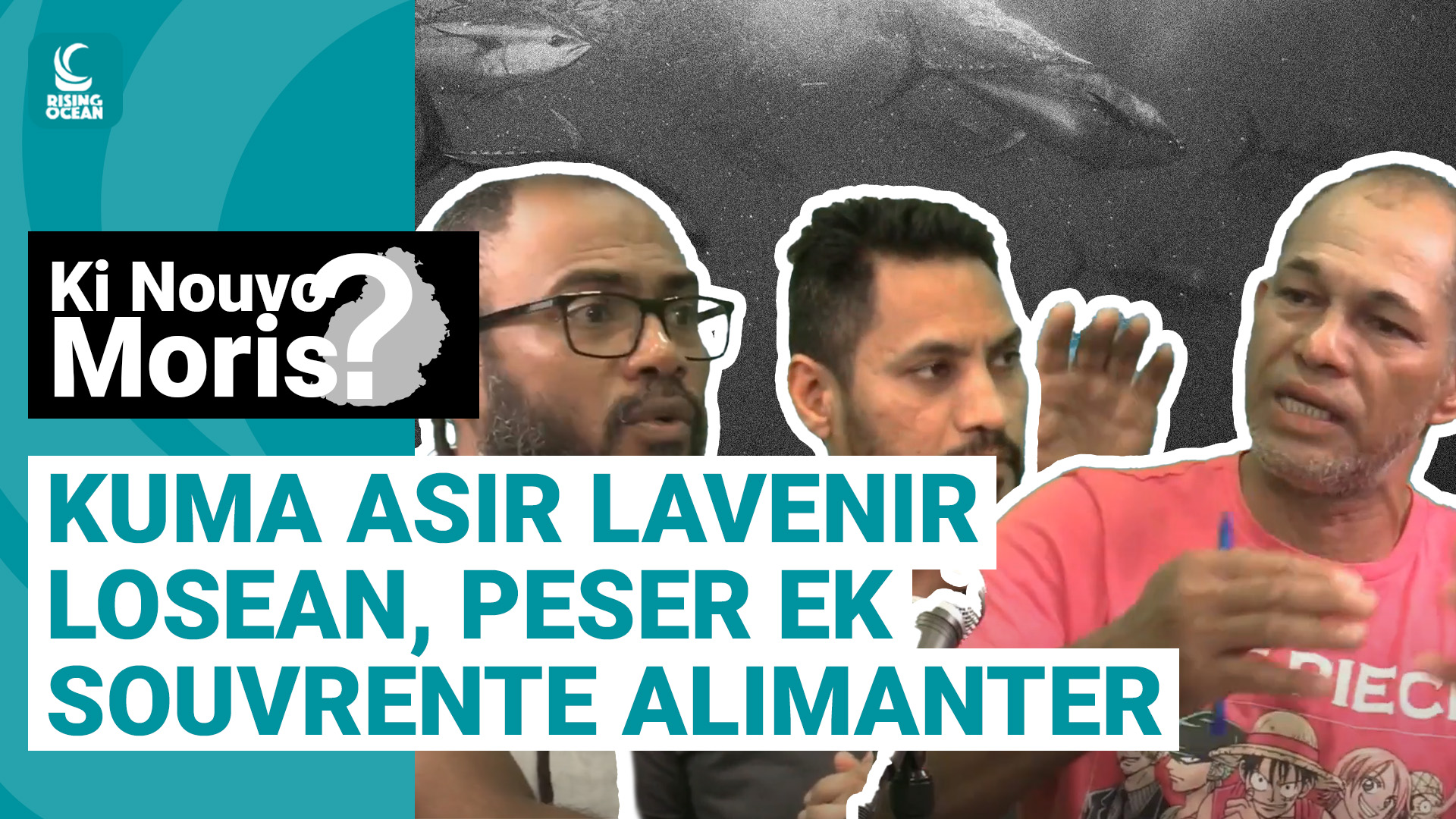On Monday August 28, 2023, the ki nouvo moris set addressed several themes such as the situation of fisherman and the fishing sector in Mauritius. An observation of our waters and the ocean surrounding the island will also be discussed because with climate change and the high level of pollution, the ocean is in a pitiful state. The guests were Judex Ramphul from the fisherman’s union and Stefan Gua, a member of the national committee of Rezistans ek Alternativ (ReA) and eco-socialist activist. Both men acknowledged that there is a mismanagement in the fishing industry by those who have decision-making power over the policies to be put in place to safeguard this natural resource which is home to a variety of creatures, and which is a means for many people to survive. The debate was hosted by Ashvin Gudday.
What is your observation of the fishing industry in Mauritius?
Judex Ramphul started the debate by saying that it is very sad because despite the fact that Mauritius is surrounded by water, the Mauritian population is not able to stock up on fish as it should. In terms of food sovereignty concerning seafood products, Mauritius is far from being sovereign, declared the trade unionist. A lot of fish, shellfish and other seafood that Mauritian consume comes from other countries. The latter finds this situation irrational and especially the price they have to pay to buy all these products is exorbitant. Why not do as other countries and island claims Judex.
“We should use our natural resources to become self-sufficient. Mauritius is surrounded by shoals of fish, and we can export them for profit. What is unfortunate is that the policy put in place to manage our exclusive economic zone is really not adequate. Contracts such as fishing agreements are allocated to several European countries as well as Japanese and Taiwanese companies to exploit the waters economically. However, the Mauritian people do not know how many tons of fish are caught by their companies per day and it is really serious since they are looting the heritage of Mauritian children. Indeed large fish-trawler are used to scrape huge quantities of fish while Mauritian fisherman still use rowboats and sailboats to earn a living. Indeed the fishing sector has a lot of future and for that, government should create fleets of boats so that young people can work.”
In 2023, many young people have entered the fishing sector, however they do not have the appropriate training. For them to become professionals, they need to have further training and also have access to the necessary equipment.
Another issue deplores the trade unionist is the lack of transparency concerning the administration of this sector. People are told that the sea is under development, but the inhabitants do not even know how the sea is used. Indeed, this is because the management of the ocean is unfortunately in the hands of individuals who know nothing about it and particularly how to protect and safeguard it.
Stefan Gua points put that Mauritius is an oceanic state with several other islands under its care.
“When you look at the maritime areas that Mauritius has to manage, it is enormously larger than its territorial area and it is unfortunate that despite the 54 years since independence, Mauritius has not given itself the means to manage this exclusive economic zone which is its heritage. Indeed, the stewardship of this ocean must however do this in respect with nature and thus not plunder the ocean.
The question of food sovereignty is very important and for an oceanic state it is unbelievable that fisherman do not have a fleet available to them to go fishing in deeper waters or even in the waters near another island such as Rodrigues, Agalega and so on. Gua is of the opinion that exchanges with another island near Mauritius should be encouraged. The eco-socialist activists find it unfortunate that Mauritius does not try to have more fruitful exchanges with Reunion Island concerning the fishing industry.
“With this proximity, the question of food sovereignty s well as a regional corporation could have settled.”
Mauritius unfortunately has not come out of thus export practice. For example, before it was the exploitation of terrestrial resources such as the plantation of cane to produce sugar and for some years it is the sea that is exploited. Since 1989, Mauritius has had a fishing agreement with the European Union mention Gua. This over-fishing is really dangerous for the marine biodiversity of the ocean because trawlers scratch the seabed and it is a real destruction since by doing this, the corals are also scraped and other animals such as turtles, dolphins are also trapped.
The latter declares that this is done at the expense of fisherman because they cannot develop a semi-industrial fishing concept that is more responsible for the marine environment. This situation is very alarming and Mauritian citizens and specially fishermen do not want other fishing agreements which will plunder the sea. Indeed, projects such as aqua-culture and drilling of the oceans to extract oil and other gas will not be accepted since they represent a real threat to the health and equilibrium of our waters.
Watch the debate here:


